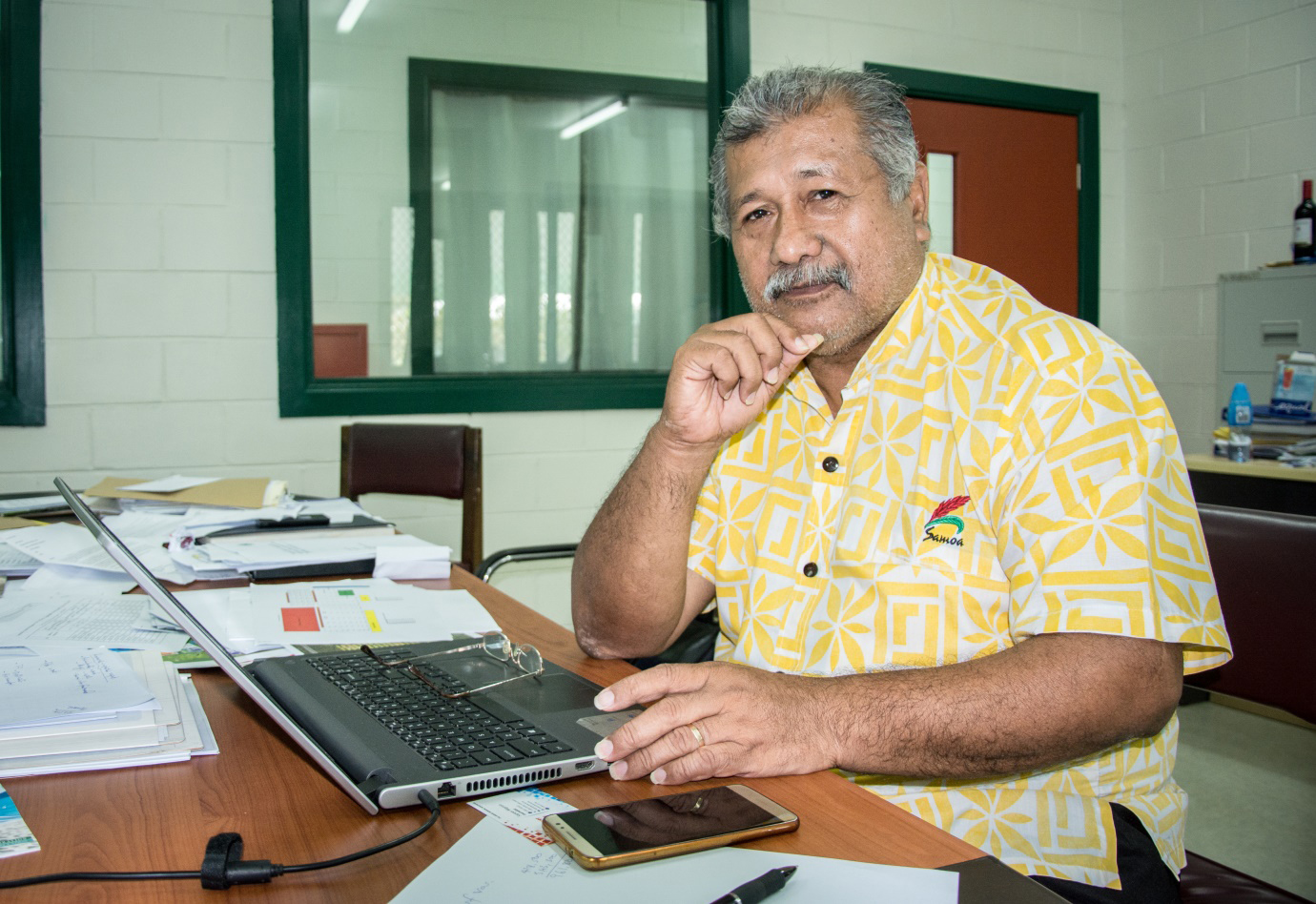Replanting coconuts for basket market on the cards
The Ministry of Agriculture and Fisheries (MAF) may consider planting coconut palms especially for the weaving of ato launiu (coconut leaf baskets) if they become a popular alternative to plastic bags.
Since the advent of the ban on single use plastic bags came into effect on January 30, some shoppers and market retailers are turning to Samoa’s traditional shopping basket made from coconut leaves, as an environmentally friendly, compostable option.
But the MAF Crops Division assistant chief executive Moafanua Tolo Iosefa said he would hesitate to support a commercial drive towards replacing plastics with organic baskets, because that could risk an already fragile coconut population.
He said if within a year, if even half the population are using woven baskets for their shopping, which wear or dry out after two or three weeks, the coconut population could feel the impact.
“To me, in the long run, this is not sustainable,” Moafanua said.
“There is no way I am going to support this idea of using the coconuts or encourage people to use coconut leaves as baskets for shopping.”
There is even a risk for individual farmers harvesting leaves for their own personal use, Moafanua believes.
“Unless you have a huge plantation of more than 100 plants that is not good, it will have an impact in the future,” he said.
Moafanua said the ministry has no plans to regulate the use of coconut leaves for baskets, but that could change if the basket business begins to boom. Samoa’s local tall variety of coconut trees are best left to flourish and supply the growing demand for the nut, both locally and internationally, Moafanua said.
But the Malayan Dwarf variety, which is much shorter, could be a viable alternative as a dedicated crop for leaf harvesting, the ACEO suggested. They would still bear fruit, but it would not be the priority.
“There are some varieties that can produce lots of leaves, so I think it is best to target those varieties for this purpose, not the Samoan Tall,” Moafanua said.
“Leave the Samoan Tall for the purpose of collecting fruit, and for generating income.”
If baskets as shopping bags can be a good source of income, and save plastics from coming off the shelves that is positive, said Moafanua. But it requires thinking and planning.
“With this new development, it’s about time to include the dwarf variety for that purpose only.”
Moafanua said while he does not wish to tell farmers how to handle their crops, he hopes they are aware of the risks of overcutting leaves from the trees.
“If I know that I can weave 100 baskets a day and sell them, even for a very low price, if I can make money out of it, why not?” he said.
“But in the long run we need to be very careful about these kinds of things.”
“Maybe [awareness of the risks] can be included in our training programmes for communities if coconut baskets are coming up as a big business in the future, to let farmers know it might affect the growth of the tree.
“Especially how many leaves to cut per tree per month, or even two to three months, to ensure the tree is growing healthily, and producing more nuts,” he said.
MAF is currently undergoing a nationwide coconut replanting programme, to replace the aging population of coconut trees. To help, MAF is opening eight new seedling nurseries (four in Upolu and four in Savaii) to distribute more seedlings across the country. Moafanua said he intends for the nurseries to be operational by the end of the month.
The crops division also incentivises farmers to gather fallen coconuts going to see from their plantations, and cash in 50 sene per seed before planting them.
“We want to encourage farmers to collect all those seedlings because there are a lot! That is the best way. If we pay them to collect the nuts, and the ministry monitors the seedlings, maybe people will think why not, there is money there?” said Moafanua.
The ministry’s focus is to improve food security and cash generation for farmers, Moafanua said. Coconuts are a high value crop with lots of potential, so they need to be protected. Supported by the World Bank, MAF has a bold target to replant two million coconut trees in the next ten years. Based on today’s figures, Moafanua said he’ll consider even 50 or 60 percent of that target a success.
“The replanting scheme is a little slow at the moment.But that is why we are trying to work together with the village, and the pulenu’u (village mayor) to engage the whole village in this programme.”











